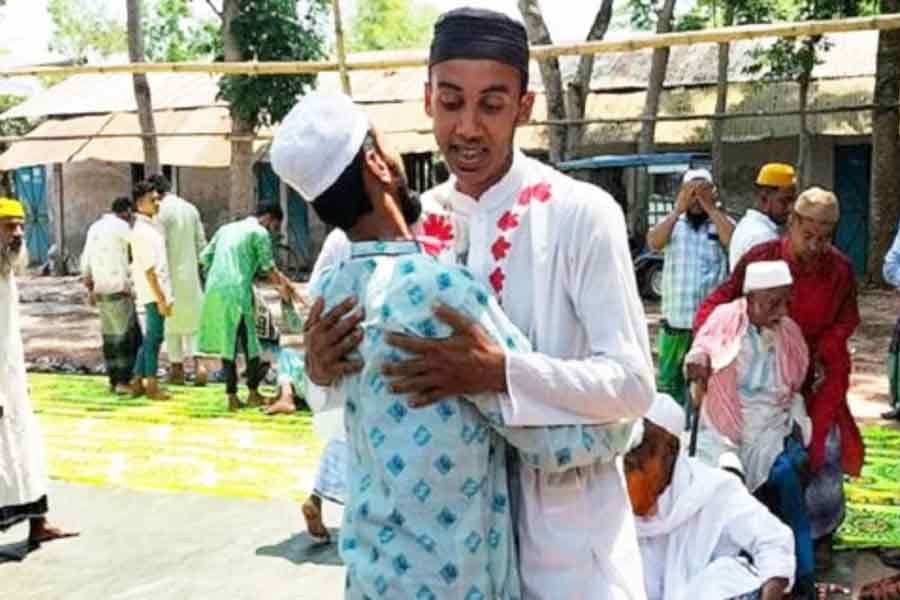
Published :
Updated :

Every year, as Ramadan approaches and the anticipation of Eid builds, the district of Chandpur in Bangladesh stands out—not for its renowned Hilsha fish but for a quirky but controversial tradition that has captured the curiosity of many. While the rest of the country celebrates Eid-ul-Fitr based on local moon sightings, Chandpur's 40 villages commemorate the festival one day early, as guided by Saudi Arabia and a few Middle Eastern countries. This distinctive practice, rooted in a 95-year-old tradition, has made Chandpur a disputable case study in the diversity of Islamic cultural practices.
The origin of celebrating Eid a day earlier in Chandpur traces back to 1928 when Maulana Ishaque, the founder of Shadra Darbar Sharif, advocated for aligning local religious practices with those of Saudi Arabia. His reasoning was rooted in global Muslim unity: "The moon is one, and the Ummah is one. When the moon is sighted anywhere worldwide, it is a sign for all Muslims to come together in worship and celebration." Although this principle appealed to his followers, it also invited controversy.
According to Dr Baki Billah Mishkat Chowdhury, the current Pir of Shadra Darbar Sharif, the tradition is based on the philosophy of "One World, One Moon." He explains that the Hanafi, Maliki, and Hambali schools agree that if the moon is sighted in any part of the world and the news reaches other regions through reliable means, Muslims everywhere must begin fasting or celebrate Eid accordingly. "This is not about being different," says Dr. Baki Billah. "It's about following the teachings of our faith and recognizing that the Ummah is one. When the moon is seen in Saudi Arabia, it is as if it has been seen here in Chandpur."
For the residents of Chandpur, celebrating Eid a day earlier is more than just a tradition—it's a symbol of their connection to the global Muslim community. The main Eid congregation is held at the Shadra Darbar Sharif Madrasah premises, where thousands gather to offer prayers led by the Pir of Darbar Sharif, Mufti Allama. Maulana Shafiqul Islam Gani, the custodian of Badarpur Darbar Sharif, emphasizes that this practice is not about being different but about embracing a broader interpretation of Islamic teachings. "Whenever the moon is seen in any part of the world, we start fasting and observe Eid in keeping with it," he says. "This has been our tradition for over 72 years, strengthening our bond with Muslims worldwide."
A resident from Hajiganj shares his perspective: "For us, celebrating Eid a day earlier is a matter of pride. It connects us to the heart of Islam in Saudi Arabia. When we hear that the moon has been sighted there, we feel a sense of unity with our brothers and sisters in Makkah and Madinah. It's like we're celebrating Eid with the entire Muslim world." Yet, not everyone shares this sentiment. Critics within and outside Chandpur argue that the practice creates unnecessary divisions. "Why should we celebrate Eid based on a moon sighting in Saudi Arabia when we have our skies to look at?" asks a local shopkeeper from a neighbouring district. "This tradition only creates confusion and separates us from the rest of the country."
As Chandpur celebrates Eid a day earlier, one thing is clear: Chandpur's early Eid will continue to spark debate and inspire conversations about the future of Islamic practices in an interconnected world.
mahdiabzaman@gmail.com


 For all latest news, follow The Financial Express Google News channel.
For all latest news, follow The Financial Express Google News channel.